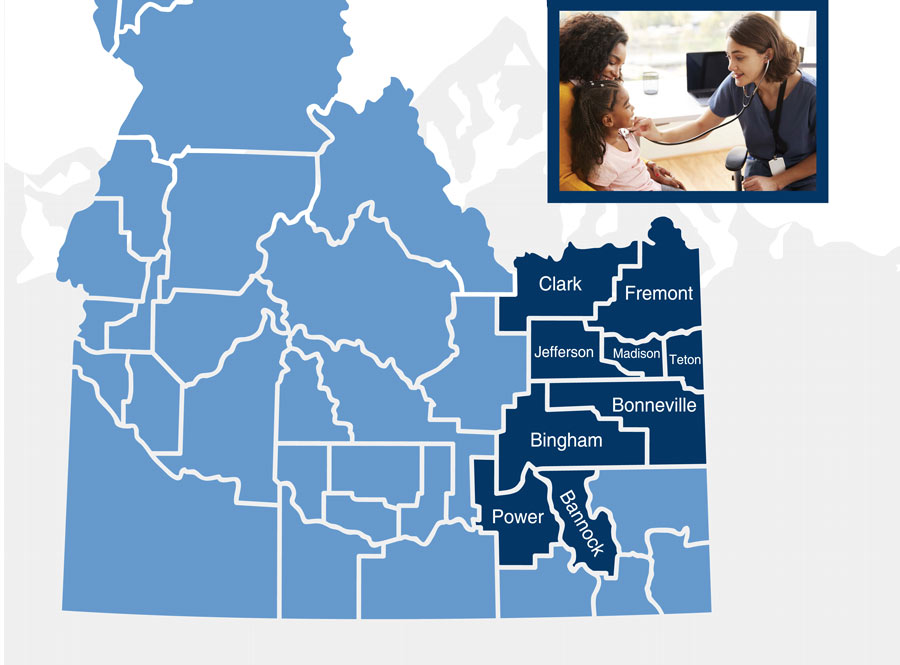Hospice is a special way of caring for people who have a life-limiting illness. The goal is to improve the quality of life, as defined by the patient and the family.
Hospice Care
Where can hospice be received?
Hospice can be received at, but is not limited to, the following places:
- Home
- Nursing home
- Assisted living
- Senior living
- Hospital
- Anywhere the patient may call home
Who pays for hospice?
- Medicare
- Medicaid
- Third Party (Insurance)
- Private Pay
Do I have to pay anything?
Hospice is covered 100 percent by Medicare Part A, Medicaid, and most private insurance companies.
What does hospice cover/not cover?
Hospice covers, but is not limited to, the following:
- Doctor services (doctor makes home visits to patients when appropriate)
- Nursing care (full body assessment, 1-3 visits a week or as needed)
- Medical equipment (hospital bed, wheelchair, shower chair, commodes, walkers, etc.)
- Medical supplies (all continence supplies, wound supplies, and anything related to the hospice diagnosis)
- Medications related to the illness (related to comfort and diagnosis)
- Hospice aide services (2-5 visits a week or as needed)
- Social work services (help with the emotional well-being of patients and families)
- Spiritual counseling (1-2 visits a month or as needed)
- Dietary counseling (as needed)
- Supportive & comfort therapies (2-3 visits a week or as needed)
- Grief and bereavement support for 13 months minimum (as needed)
Hospice does not cover the following:
-
- Aggressive treatments intended to cure the illness
- Transportation
- Housing
What are your service areas?
We have a team in Pocatello, Rexburg, and Idaho Falls. See the map below for our service areas:
How do I know if I qualify for hospice?
Give us a call for a free consultation to see if you or your loved one qualifies for hospice. Call (208) 757-8444
The following guide may help one determine if they qualify for hospice care (call for a free consultation):
- The patient is eligible for Medicare Part A (Hospital Insurance), Medicaid, or private insurance.
- The patient has a chronic, life-limiting illness.
- The patient is struggling to complete daily tasks.
- The patient is struggling to manage symptoms of pain.
Qualifying hospice conditions may include the following:
- Amyotrophic lateral sclerosis (ALS)
- Stroke/Coma
- Cancer
- Liver Disease
- Renal Disease
- Dementia
- Pulmonary Disease
- Neuromuscular Disease
- Heart Disease
- HIV Disease
- Multiple Sclerosis (MS)
When is the right time to ask about hospice care?
Now is the best time to learn more about hospice care and ask questions about what to expect from hospice care services. Although end-of-life care may be difficult to discuss, it is best for family members to share their wishes long before it becomes a concern. This can greatly reduce stress when the time for hospice is needed. By having these discussions in advance, patients are not forced into uncomfortable situations. Instead, patients can make an educated decision that includes the advice and input of family members and loved ones.
How does hospice care begin?
Typically, hospice care starts as soon as the patient’s primary doctor or family makes a referral. A Solace hospice representative will make an effort to visit the patient within 1 hour of that referral, providing the visit meets the needs and schedule of the patient and family/primary caregiver.
Will I be the only hospice patient that the hospice staff serves?
Every hospice patient has access to a hospice volunteer, registered nurse (RN), licensed social worker (LSW), certified nurse assistant (CNA), spiritual care, and other caregiving professionals. For each patient and family, the interdisciplinary team writes a care plan with the patient/family that is used to make sure the patient and family receive the care they need from the team. Typically, full-time registered nurses (RN) provide care to about a dozen different families. Licensed social workers usually work with about twice the number of patients/families as nurses. If needed, a certified nurse assistant (CNA), who provides personal care to the patient, will visit most frequently. All visits, however, are based on the patient and family needs as described in the care plan and the condition of the patient during the course of illness. The frequency of volunteers and spiritual care is often dependent upon the family’s request and the availability of these services. Travel requirements and other factors may cause some variation in how many patients each hospice staff serves.
Is hospice available after hours?
Hospice care is available on-call 24/7 after the administrative office has closed. Solace’s registered nurses and doctors are available to respond to a call for help as soon as possible, if necessary.
How does hospice work to keep the patient comfortable?
Many patients may have pain and other serious symptoms as the illness progresses. Our hospice staff receives special training to care for all types of physical and emotional symptoms that cause pain, discomfort, and distress. Keeping the patient comfortable and pain-free is an important part of hospice care. Solace Hospice has developed ways to measure how comfortable the patient is during the course of their stay on hospice services. Our hospice staff works with the patient’s physician to make sure that medication, therapies, and procedures are designed to achieve the goals outlined in the patient’s care plan. The care plan is reviewed frequently to make sure any changes and new goals are in the plan.
What role does the hospice volunteer serve?
Hospice volunteers are generally available to provide different types of support to patients and their loved ones including running errands, preparing light meals, staying with a patient to give family members a break, and lending emotional support and companionship to patients and family members. Because Solace hospice volunteers spend time in patients’ and families’ homes, each volunteer has to go through a background check, drug test, and interview process to assure the person is right for this type of volunteer work. In addition, Solace hospice has an organized training program for its patient care volunteers. Areas covered by Solace hospice training include understanding hospice, confidentiality, working with families, listening skills, signs and symptoms of approaching death, loss and grief, and bereavement support.
Can I be cared for by hospice if I reside in a nursing facility or other type of long-term care facility?
Yes. Hospice care services can be provided to a terminally ill person wherever they live. This means a patient living in a nursing facility or long-term care facility can receive specialized visits from their hospice registered nurse (RN), licensed social worker (LSW), certified nurse assistant (CNA), spiritual care, and volunteers, in addition to other care and services provided by the nursing facility. Solace hospice and the nursing home will have a written agreement in place in order for them to serve residents of the facility.
How can I be sure that quality hospice care is provided?
Solace uses tools to measure how well employees are doing in relation to quality hospice standards. In addition, most programs use family satisfaction surveys to get feedback on the performance of their programs. To help hospice programs in making sure they give quality care and service, the National Hospice and Palliative Care Organization has developed recommended standards entitled ‘Standards of Practice for Hospice Programs’ as one way of ensuring quality.
Do you follow the HIPAA Policy?
Solace is a Medicare and Medicaid certified agency and was accredited by the Joint Commission in 2009. Solace respects and follows The Health Insurance Portability and Accountability Act of 1996 (HIPAA) privacy standards.

